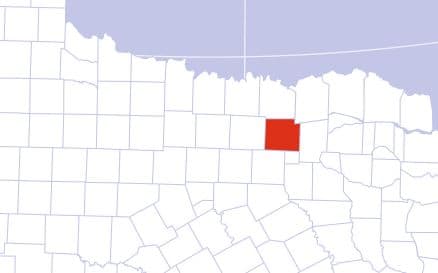Collin County Cannabis – Is It Legal & Where To Buy 2026
- Texas Cannabis
- Collin County Cannabis
Is Cannabis Cultivation Legal in Collin County?
The cultivation of cannabis for recreational use is illegal in Collin County. The county does not have its own laws about cannabis cultivation, but in Texas, Collin County's home state, recreational marijuana is prohibited. The Texas Controlled Substances Act classifies cannabis as a Schedule I controlled substance, prohibiting its use or cultivation for recreational purposes in the state.
In June 2015, medical marijuana was legalized in Texas through Senate Bill 339 (the Texas Compassionate Use Act). However, only cannabis products containing less than 1% of tetrahydrocannabinol (low-THC products) are allowed for medical use. According to the provisions of the Texas Compassionate Use Act, licensed cannabis dispensary organizations may grow and process marijuana plants and dispense low-THC cannabis products to registered medical marijuana patients. Texas counties, including Collin County, cannot restrict the cultivation of cannabis for the manufacture of low-THC cannabis products in their jurisdictions. The Texas Department of Public Safety (DPS) regulates all cannabis activities in the state.
Is Cannabis Manufacturing Legal in Collin County?
In Collin County, it is illegal to manufacture cannabis products for recreational use. The county does not have local ordinances prohibiting the manufacture of marijuana products, but the Texas Controlled Substances Act bans cannabis manufacturing activities for recreational purposes. Nevertheless, under the Texas Compassionate Use Act, dispensary organizations may manufacture low-THC cannabis products and dispense them to registered medical marijuana patients. The Act prohibits county authorities (including Collin County authorities) from establishing ordinances that limit low-THC cannabis manufacturing activities within their borders.
Is Cannabis Retail Legal in Collin County?
It is illegal to retail cannabis products in Collin County for recreational use. Per the Texas Controlled Substances Act, it is unlawful to sell marijuana products in any part of Texas, including Collin County. Nevertheless, licensed medical cannabis dispensary organizations may dispense low-THC cannabis products, including oils, salts, resins, and mixtures, to registered medical marijuana patients. Marijuana edibles are not approved for sale in Collin County.
Is Cannabis Delivery Legal in Collin County?
It is illegal to deliver cannabis products for recreational use in Collin County. The Texas Compassionate Use Act does not contain provisions for cannabis delivery to registered medical marijuana patients.
How to Get Medical Marijuana Card in Collin County
Medical marijuana patients in Collin County must be registered under the Texas Compassionate Use Program (CUP) in order to legally buy low-THC cannabis products. The CUP is administered by the Texas Department of Public Safety (DPS), and registration in this program proves that a patient was diagnosed with a medical condition that qualifies them to use medical marijuana. Medical marijuana patients of any age may be registered under the CUP. However, patients under 18 will require approval from their legal guardians.
A qualifying patient in Collin County who wishes to enroll in the Texas Compassionate Use Program (CUP) should see a physician licensed to prescribe low-THC cannabis. If a doctor prescribes low-THC cannabis for a patient, they will enroll the patient in the Compassionate Use Registry of Texas (CURT). Patients registered in the CURT system may legally obtain low-THC cannabis from licensed medical cannabis dispensary organizations. Patients cannot register themselves in the CURT system, and they are not given physical medical marijuana identification cards. Applicants may make further inquiries about the CUP registration in Texas by contacting the DPS's Regulatory Services Division (RSD) online or calling the Division at 1 (512) 424-7293 between 7:00 a.m. and 6:00 p.m. on weekdays. They may also make in-person inquiries at:
Texas Department of Public Safety Regulatory Services Division
Building I, 5806 Guadalupe Street
Austin, TX 78752
How Has Cannabis Legalization Impacted the Economy of Collin County?
According to the 2021 medical marijuana prescription report by the Texas Department of Public Safety (DPS), the amount of low-THC cannabis dispensed at dispensary organizations tripled between February and December. In addition, the 2022 medical marijuana prescription report showed a 28% increase in dispensed medical cannabis between January and March 2022. Actual cannabis revenue figures for Texas counties are unavailable. Nevertheless, a report by Vicente Sederberg LLP on the economic benefits of cannabis regulation and taxation in Texas states that the state can generate up to $10 million of revenue from cannabis annually.
The Effects of Cannabis Legalization on Crime Rates in Collin County
According to Federal Bureau of Investigation (FBI) crime reports, the Collin County Sheriff's Office (CCSO) made 42 marijuana possession arrests in 2014 and 34 in 2015, the year medical marijuana was legalized in the state. In 2018, the number of marijuana possession arrests increased to 108 and then dropped to 18 in 2020. The report showed that there were no arrests for marijuana sales offenses in 2014, 2015, 2018, or 2020. In addition, the FBI crime reports showed that the CCSO made one DUI (Driving Under the Influence) arrest in 2014, three in 2015, 71 in 2018, and 55 in 2020.
These data indicate that medical marijuana legalization had varying impacts on crime rates in Collin County. While the figures for marijuana sales arrests remained unchanged after cannabis legalization, the number of arrests for cannabis possession in Collin County did not follow a specific trend. Also, cannabis legalization did not significantly affect DUI arrest rates in Collin County.
